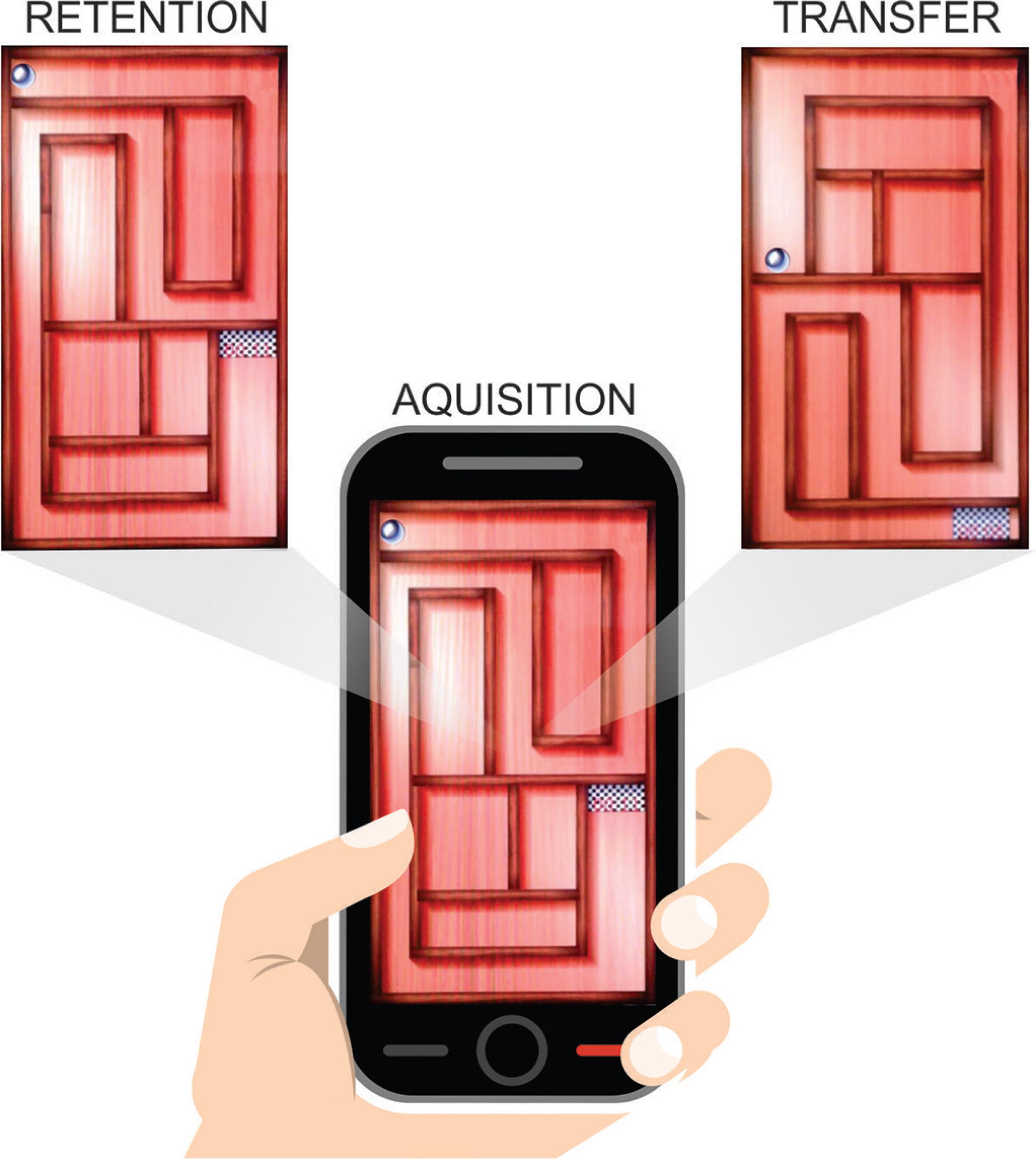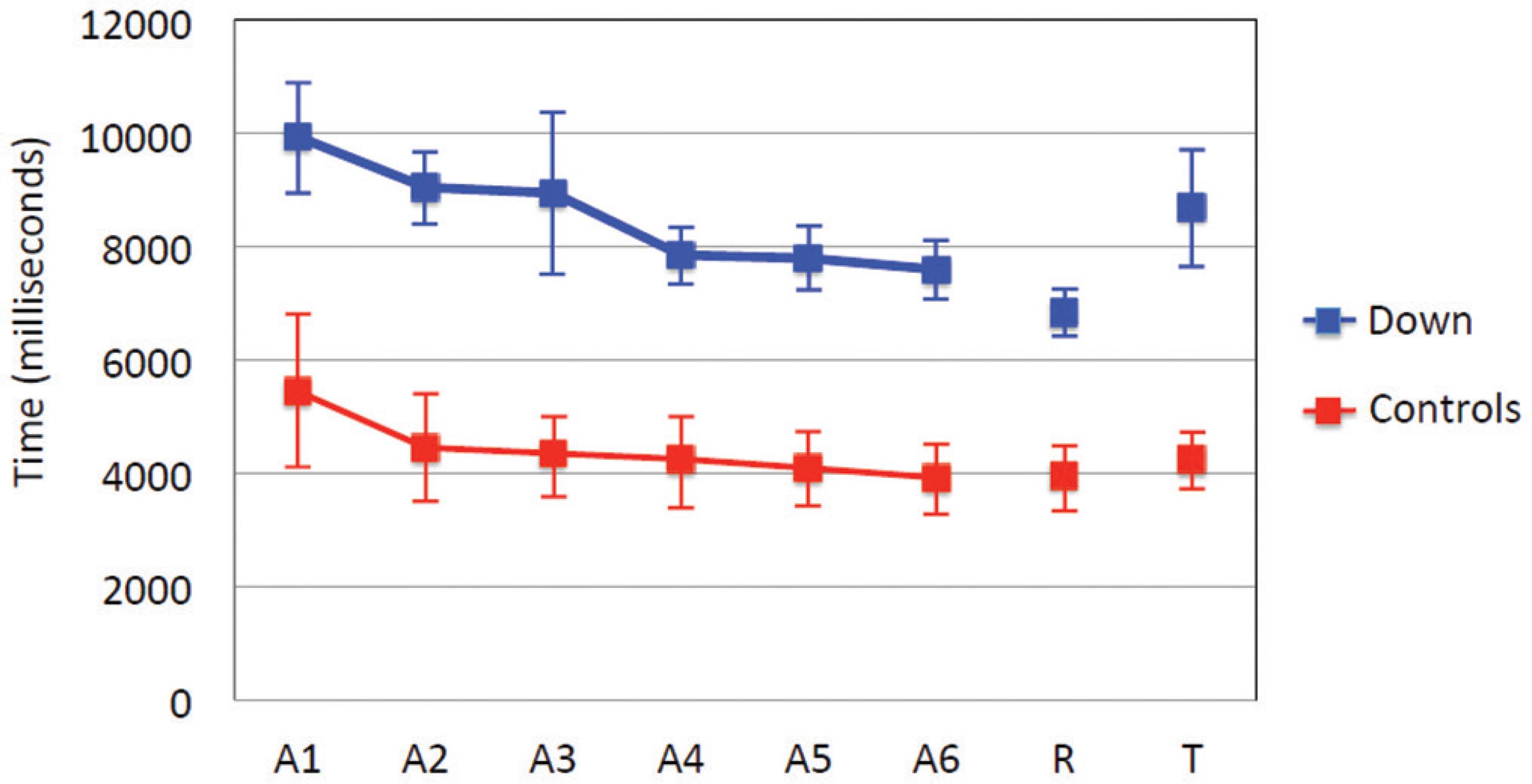OBJECTIVE: The objective of this study was to verify if individuals with Down syndrome have improved performance in completing a virtual maze task using a mobile phone.
METHOD: For this task, 30 teenagers and young adults were evaluated, 15 Down syndrome patients and 15 typically developed controls. The execution of the task was to play a maze on a mobile phone. The subjects performed 30 repetitions of the maze game in the acquisition phase, five repetitions for retention and five for transfer phase. A repeated measures ANOVA was used to compare blocks (first and last - A1 - A6 acquisition blocks, retention A6 - R and transfer A6 - T) and Groups (Down syndrome and typical development).
RESULTS: The results showed that both groups had significant improvement over time in the acquisition phase, the retention and transfer tests showed that there was performance consolidation for both groups, but with longer movement time in the Down syndrome group.
CONCLUSION: Comparing the two groups, individuals with Down syndrome required more time to run the maze in all phases of the task.
KEYWORDS:
Down syndrome; Motor learning; Virtual reality

 Motor learning in mobile (cell phone) device in Down syndrome patients - pilot project
Motor learning in mobile (cell phone) device in Down syndrome patients - pilot project

